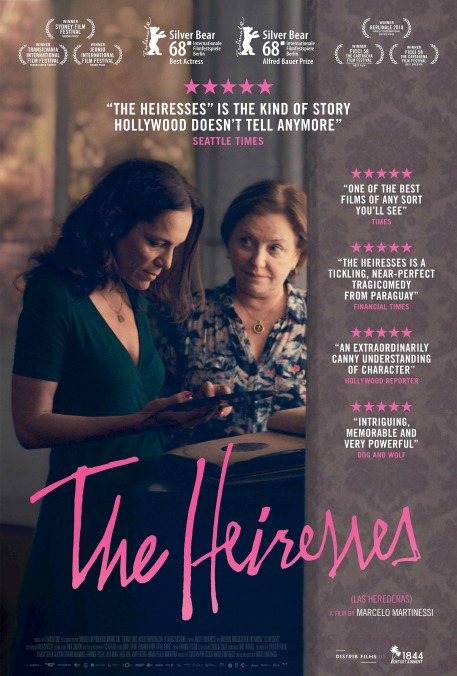An award-winning lead performance can’t steer The Heiresses into insightful drama

How much sympathy should one feel for the formerly wealthy? That’s one of many questions barely explored by The Heiresses, Paraguay’s submission to the foreign-language competition at this year’s Oscars. (It didn’t make the shortlist.) The film begins with its protagonist’s decline already in progress, as Chela (Ana Brun) sorrowfully watches from the shadows while strangers tour her big old house in Asunción, browsing fancy items—paintings, silver flatware, crystal glasses—that she and her lifelong partner, Chiquita (Margarita Irun), have been forced to sell. What exactly happened to the couple’s finances remains murky, but Chiquita is headed for several months in jail on fraud charges, leaving Chela to fend for herself for the first time in her life. Well, except for the live-in maid (Nilda Gonzalez) that she can’t bring herself to dismiss—not out of affection or loyalty (this particular woman has only been working for them a short time), but because living without hired help seems unthinkable.
If that sounds like a satirical portrait of blinkered privilege, guess again. First-time writer-director Marcelo Martinessi feels great compassion for Chela, and the film’s concern for her happiness is its driving force. Speaking of which: A sliver of a plot emerges when one of Chela’s neighbors (María Martins) stops by to ask whether Chela might be willing to drive her to her regular bridge game. Kidnappings involving taxis are apparently common in Asunción, judging from news reports heard in the background of early scenes, and Uber hadn’t yet begun operating in Paraguay when The Heiresses premiered at last year’s Berlin Film Festival. (They just started taking applications from potential drivers a month ago.) So Chela, out of desperation, stumbles into an unlicensed ride-hailing gig, chauffeuring the bridge players around for money. She also agrees to help a much younger woman, Angy (Ana Ivanova), get her mother to medical appointments in nearby Itauguá, and increasingly falls under Angy’s casually erotic spell.
Brun, who had never acted onscreen before (like almost the entire cast), won Berlin’s Best Actress prize, and her guarded yet tremulous performance is the film’s primary virtue. But she can’t singlehandedly bring depth to the superficial scenario that Martinessi has engineered for this intriguing character. The Heiresses is oddly incurious about numerous crucial aspects of Chela’s life. She appears to be an artist, or at least to have artistic ambition—we see her painting several times—but seems no more distressed about selling the valuable paintings she owns than about selling any of the other expensive stuff she inherited. (Olivier Assayas made an entire, much richer movie, Summer Hours, on this subject alone.) Nor do we get much of a sense of how this aristocrat-by-birth feels about becoming part of the gig economy, as her makeshift job mostly serves to introduce her to Angy. And that relationship similarly gets glossed over. Has something been missing from Chela’s decades-long relationship with Chiquita? We don’t see enough of their dynamic to know, even though Chela visits her in jail multiple times. The entire movie feels muddled, especially in its effort to fashion a gets-her-groove-back narrative from financial ruin. Losing everything is often transformative in the movies, and often debilitating in real life. Here, it’s just a vague annoyance.